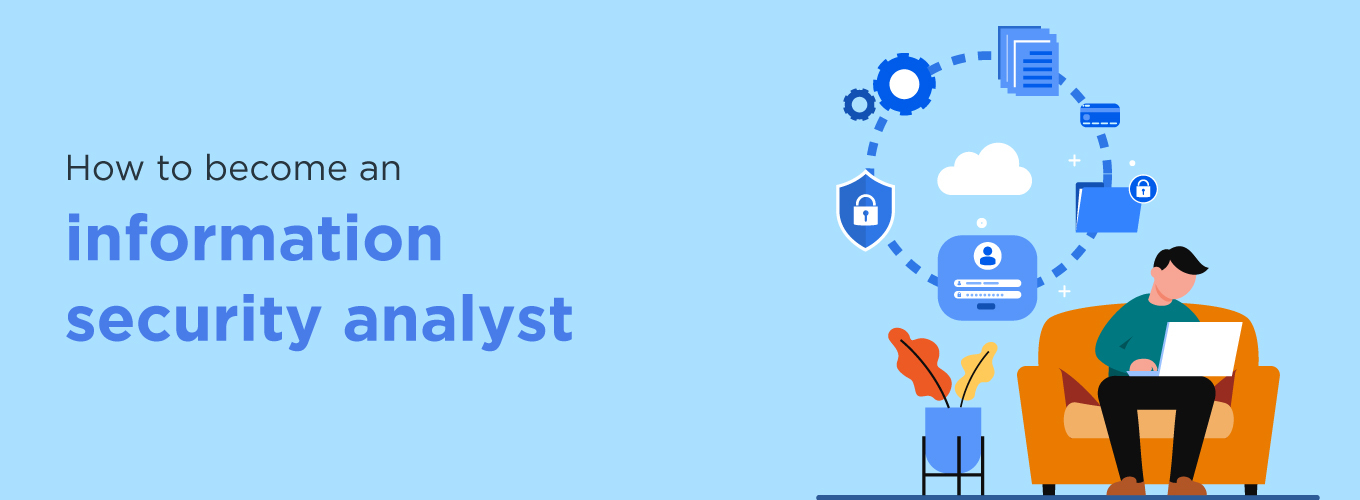How to Become an Information Security Analyst
Even the smallest organizations today manage large amounts of data. With the advent of a networked environment and cloud solutions, access to data to solve complex business challenges is very common. Because data can be used to gain competitive advantage, it has become less secure and organizations that store and manage large amounts of data have become targets for criminals. Very large companies have seen data breaches where hundreds of social security numbers, passwords or credit card numbers have been compromised. Information security analysts use their ingenuity and strong analytical skills to protect one of the most important assets of a company: its data. The path to becoming an information security analyst can be rewarding, challenging and ever-evolving. In an evolving world where information technology is changing, it is a fascinating career option. The job is to enable the safe operation of a company.
Table of Contents
What is the role of an information security analyst?
The job of an information security analyst is to protect the company’s network, systems and databases from cyberattacks or data breaches. The job will include:
- Detecting and monitoring various aspects of security like physical, software and network security.
- Performing compliance control testing.
- Maintain data encryption programs and firewalls to protect sensitive data
- Assist users with the installation or learning of new security products.
- Developing training programs for everyone in the company on how to minimize security risk.
- Being aware of evolving threats in cybersecurity and learning by communicating with external sources.
- Collaborating with the management and other teams and implementing security practices.
Companies that keep sensitive information and data will need information security analysts. They can be working in any vertical of business, like technology, finance, insurance or sales. The information security analyst will generate reports which will be used by IT admins and business executives to assess how practical their security apparatuses are. Based on these recommendations, companies will alter security networks and ensure that information is not available to unauthorized individuals.
Information security vs cyber security
Both words are often confused and used interchangeably. While there is a significant overlap between the terms, they are slightly different. Cybersecurity refers to preventing cyberattacks that come from unauthorized electronic sources. Information security focuses on protecting data and information of an organization, employees or users in both physical and electronic form. Information security also means ensuring that those authorized have access to data when they need it.
How do I become an information security analyst?
- Computer security basics: You need a good knowledge of firewalls, routers and other security infrastructure. You may also need experience in ethical hacking or penetration testing.
- Familiarity with privacy laws: You will need to be familiar with the data privacy laws in your region. If you work in healthcare or finance, you may need to be familiar with those sector’s privacy laws as well.
- Communication and teamwork: Communicating with the team on threats and helping people respond is a critical part of being an information security analyst.
An information security analyst will need the following skills:
- Degree requirement: A bachelor’s degree in cyber security or a related field such as computer science or information management systems.
- Curriculum: Up-to-date information about IT-related systems and trends, exposing students to industry knowledge.
- Skills gained: Ability to handle critical computer-related issues, such as data recovery planning and IT system restoration after a catastrophe.
- On-the-job experience: Adds credibility and practical experience to the resume, showcasing the ability to apply knowledge in real-world situations.
- Staying updated: Keeping abreast of newly-emerging technologies and methods in cyber security, including firewall systems and incident response strategies.
- Benefits of staying updated: Helps stay ahead of potential cyber breaches and maintain relevance in the ever-evolving field of cyber security.
Apart from these, there are various attempts to penetrate computer networks and systems such as malware implementation and denial-of-service attacks. You have to be prepared to take up these new variants and versions. One good way to do this to get certifications. There are credentials such as certified information systems security professional (CISSP) and other specialized certifications. A certified reverse engineering analyst certification focuses on skills related to malware analysis. A certified ethical hacker can lawfully hack into a network’s security system to expose flaws. You could also pursue an MS in cyber security which will help you be considered for higher-level positions or advancements.
The information security analyst’s role has become very crucial in recent years thanks to the growing importance of electronic business data and the need to keep it secure. It is a robust field and vital for businesses today.










